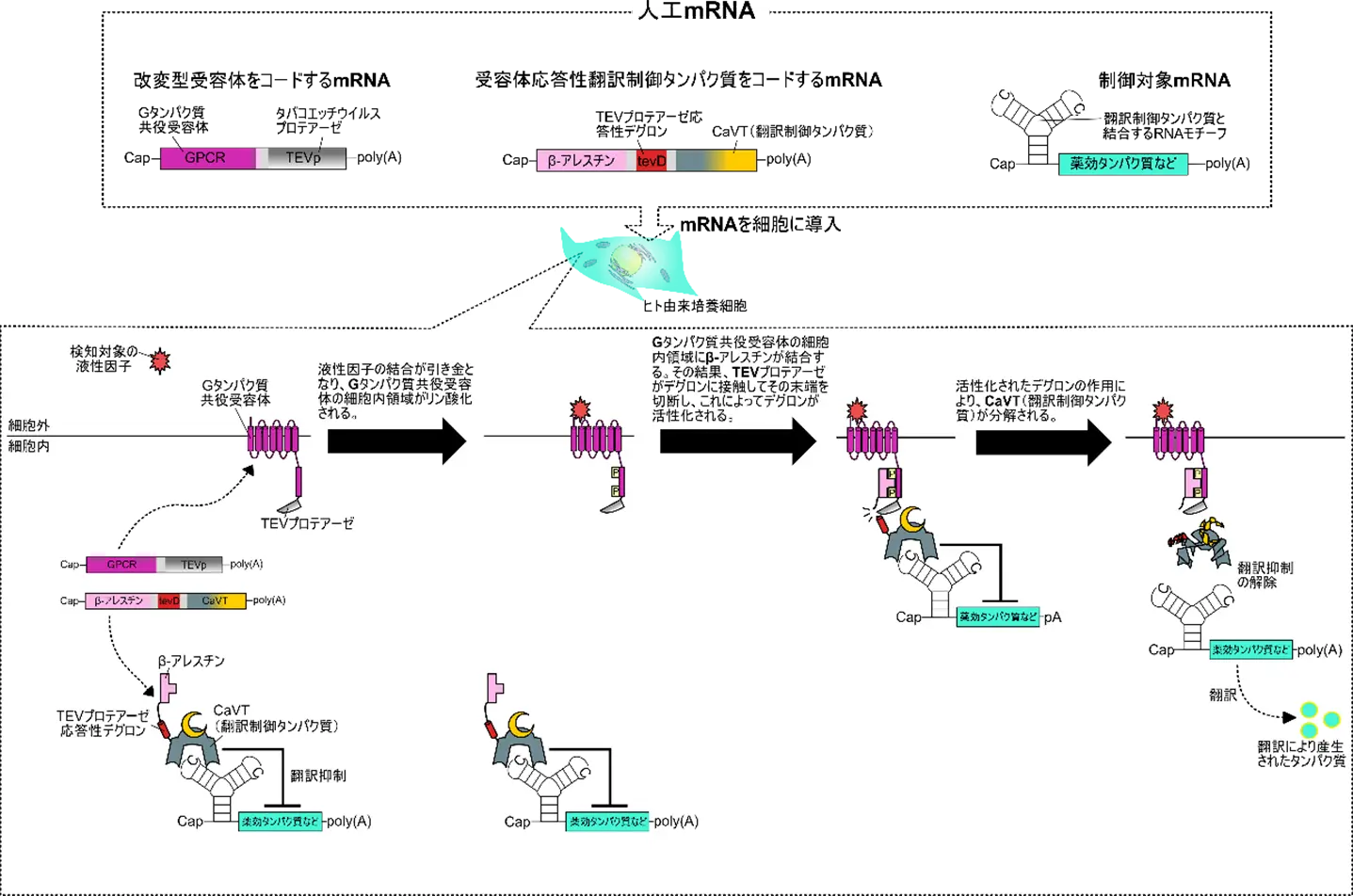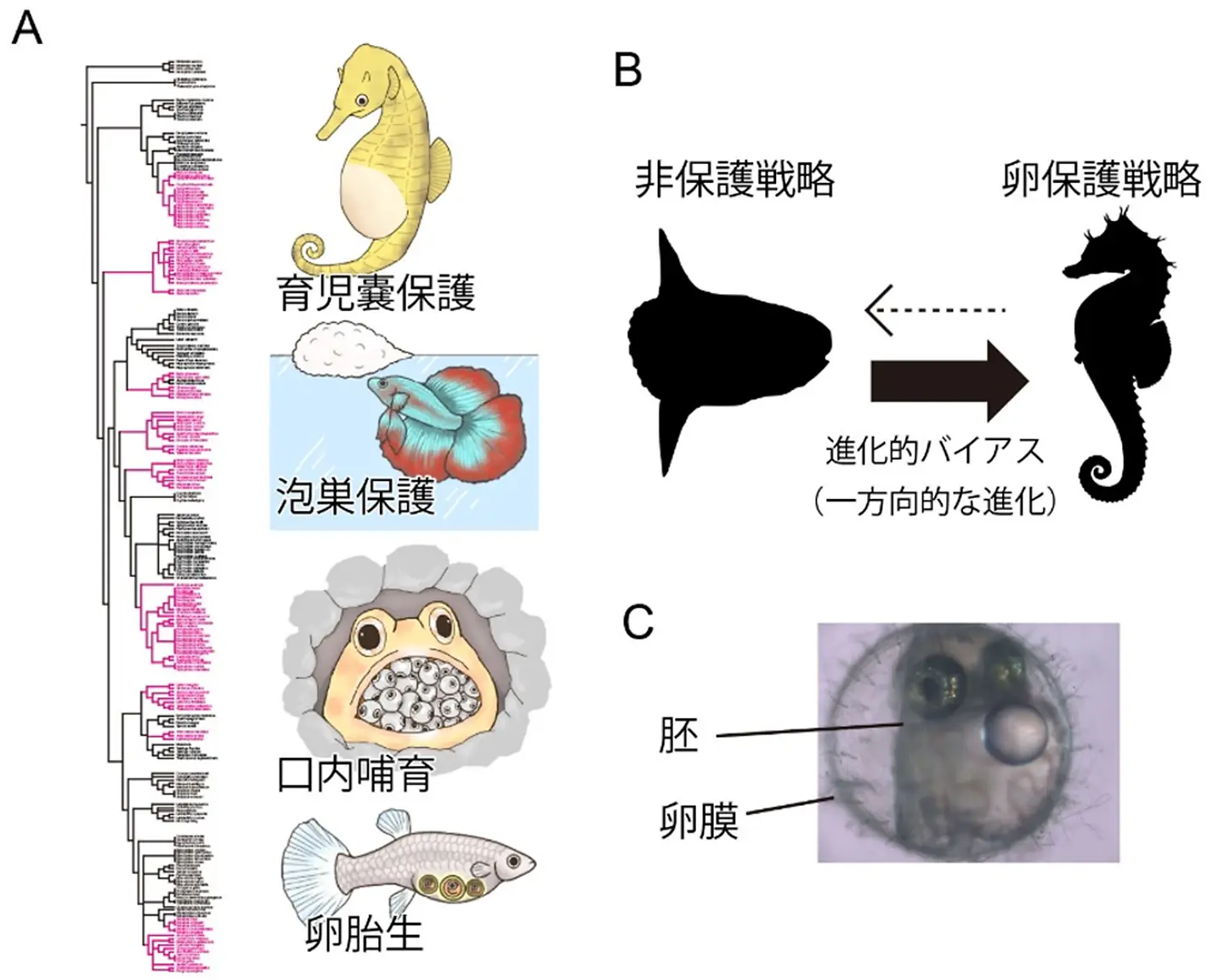2025-06-09 東京科学大学
 図1 液性因子に応じて制御されるmRNA医薬の仕組み
図1 液性因子に応じて制御されるmRNA医薬の仕組み
<関連情報>
人工受容体を用いた合成mRNAの細胞外リガンド応答性翻訳制御 Extracellular ligand-responsive translational regulation of synthetic mRNAs using engineered receptors
Hideyuki Nakanishi & Keiji Itaka
NPG Asia Materials Published:06 June 2025
DOI:https://doi.org/10.1038/s41427-025-00607-6
Abstract
mRNA drugs can encode any protein, making them a promising treatment modality. In the present study, we developed a novel mRNA system that enables extracellular ligand-responsive translational regulation. This system consists of three mRNAs—two that encode components responsible for detecting extracellular ligands and a third that encodes the protein of interest, featuring a binding motif in the 5′ UTR for translational regulation. In the presence of ligand biomolecules, such as arginine vasopressin (AVP) and prostaglandin E2 (PGE2), the protein of interest is translationally upregulated or downregulated in a concentration-dependent manner. We demonstrated that this system enhances anti-inflammatory signaling in response to the inflammatory mediator PGE2, enabling therapeutic protein production based on the disease site environment. This self-regulatory mechanism may help mitigate the risk of both excessive therapeutic protein-mediated adverse effects and insufficient therapeutic efficacy. Furthermore, by modifying its receptor module to detect different disease markers, the system can be adapted for the treatment of various conditions. Our findings pave the way for the development of next-generation mRNA drugs that can achieve both high therapeutic efficacy and minimal adverse effects.

